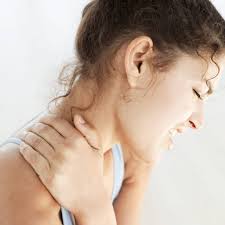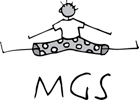 The start of the school year can, unfortunately, herald the start of neck pain in teenagers.
The start of the school year can, unfortunately, herald the start of neck pain in teenagers.
A recent study in the Netherlands found that nearly half of the 16-year-old girls studied and 1/3 of the boys had had neck pain in the past few weeks. Why is it that so many of our teenage girls and boys get neck pain? There are a number of daily activities that are likely to contribute to tightness and pain in adolescents’ necks.
Here are 3 top contributors and a few tips on how to reduce the risk of neck pain in kids and teenagers:
-
Carrying a heavy school bag
We have all seen children walking bent forward with heavy school bags on their backs. Firstly, tighten the shoulder straps till the bag sits high on their back rather than down low which will drag the weight of it down and backwards. If the bag has one – fasten the waist strap around the child’s hips so that their pelvic area takes some of the weight of the bag off the upper back and neck. Definitely discourage them from carrying the bag on one shoulder or using a shoulder bag.
Next, try and lighten the load – buy the lightest bag possible. Check that there isn’t forgotten clothing/ lunch/ umbrellas/ books at the bottom of the bag. Throw out that mouldy apple – every bit counts! A lot of schools are using an iPad now but the kids still seem to have textbooks too. If possible, download the textbook onto the iPad or device of your choice. Try to encourage your child to always check what books/sports equipment/clothes/instruments etc they need for that particular day rather than just carting everything around all the time.
Also, make sure the heaviest contents like textbooks are placed closest to the spine. This stops the backwards drag on the bag which encourages the slumped posture.
-
Mobile device use and computers
Posture is paramount when it comes to using mobile devices and computers. Laptops and mobile devices are now common among adolescents at school. They encourage slumped posture which puts the neck in a forward and extended position and means the posterior neck muscles have to work constantly to even hold up the head.
Laptops and mobile devices are worse for posture than computers because they sit lower on the desk and the screens are smaller, which means we have to hunch over further to have a direct line of sight with the screen. If possible encourage your child to use a desktop computer at home. If you don’t have a desktop computer, invest in a stand and a separate keyboard for a laptop. It is advised you discourage using a laptop or mobile device in bed or lying on the floor. Weak muscular balance around the shoulder girdle and neck can be primarily responsible for unnecessary loading of the base of the neck, leading to stiffness and pain.
Make sure the home computer setup is adaptable to the size of different family members. The top of the computer screen should sit directly at eye height. The feet should be flat on the floor and the elbows should be at greater than 90 degrees with the hands on the keyboard and the shoulders relaxed. Make sure to also stretch your neck and shoulders when you can. Some simple stretches can include:
- Stretching the neck on either side by lowering your ear to your shoulder on both sides.
- Slowly turn and stretch your head over each shoulder side to side.
- Rolling your shoulders in circles back and forth can also help improve blood flow and ease the tension around the neck.
-
Stress
Here at MGS Physio, we have seen a pattern showing an increase in adolescents presenting with neck pain around exam time. The reason for this includes an increase in time in front of the books but also it seems to be related to stress. Stress increases the tension in the muscles around the neck. Other symptoms associated with this course of neck pain include clicking/sore jaw, teeth grinding and headaches. Ensure your child takes regular breaks from study and keeps up the sports and other activities they enjoy. This is especially important in the highly stressful later years of school.
Prevention is definitely the key but if you find your child has repeated episodes of neck pain have it investigated by a physiotherapist or your GP. Often what is needed is for them to hear the above advice from someone who isn’t their mum or dad!
Check out more of our blogs here for more tips on how to combat pain, tightness and stiffness in the body, or contact us today at MGS to book in a session with our experts.
